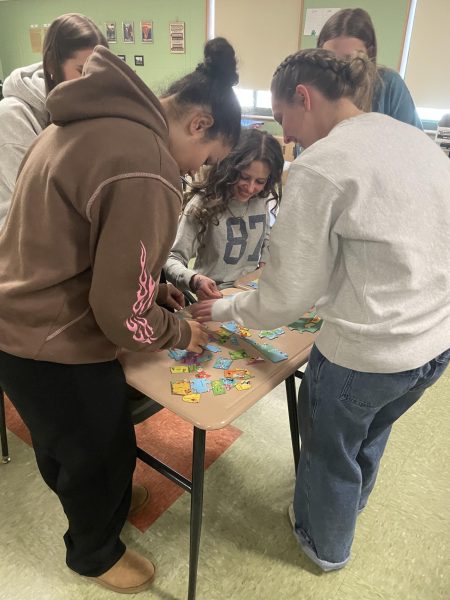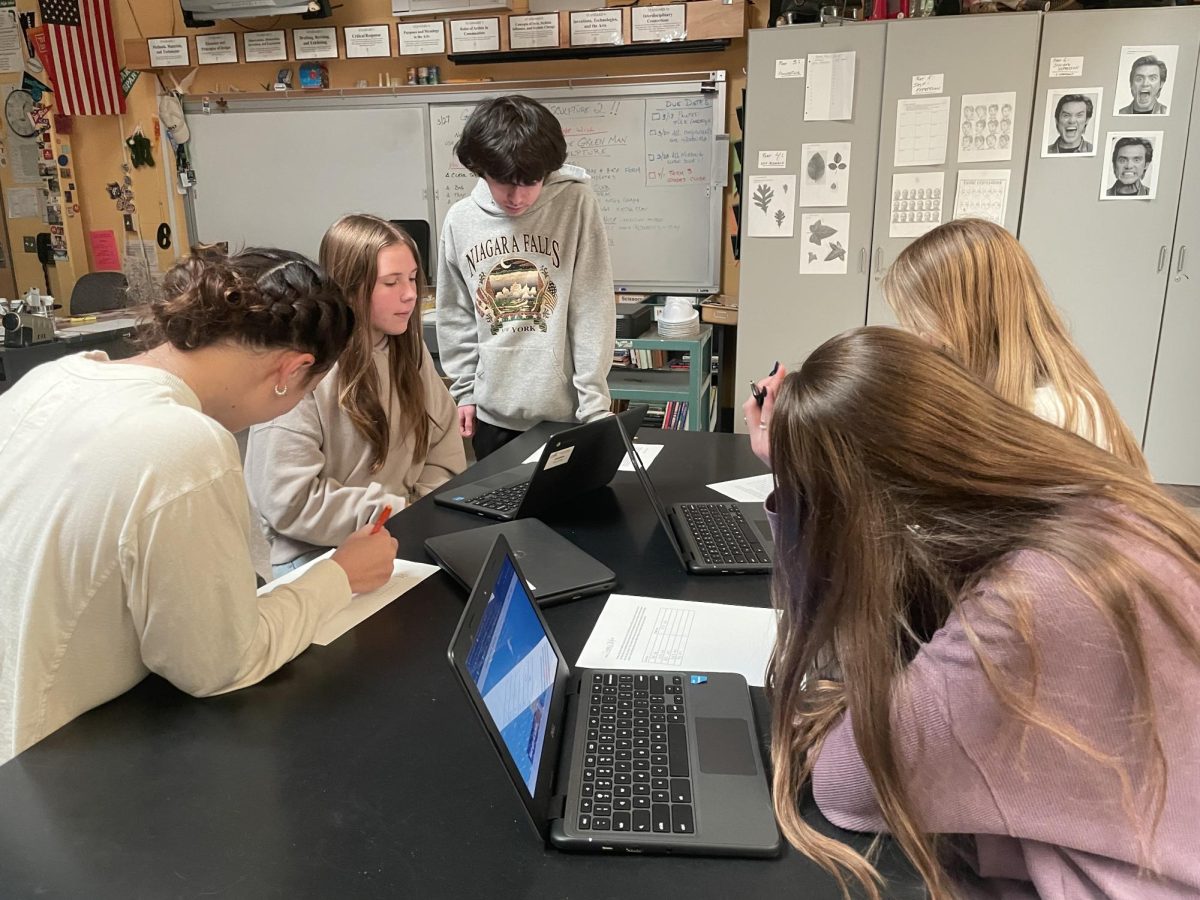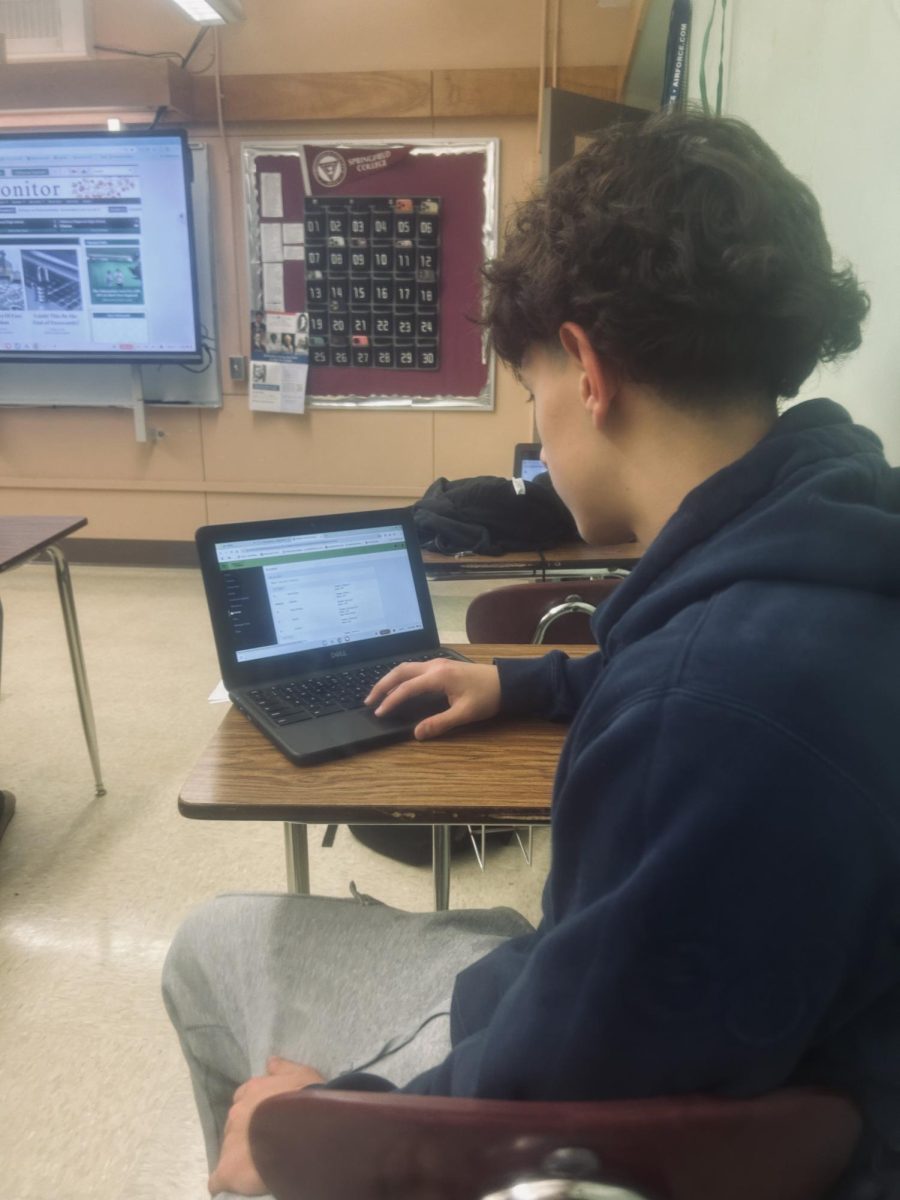On Thursday, March 27th, Mrs. Martin’s D-block psychology class left their textbooks behind and conducted hands-on experiments to display the skills they had been learning in class. The students were tasked to come up with a hypothesis relating to general human behavior and, from that, design an experiment that tested their theory. As a result, the students would be able to determine whether or not their hypothesis was correct.
Ms. Melissa Martin, a veteran teacher who has facilitated this unit for years, focused on some concepts that students learn. “There are a lot of outside variables that could influence their final hypothesis…things they didn’t even consider,” said Martin.
This hands-on method of learning always generates interesting data collection and results.
One of the experiments, conducted by Jayden Curry, was based on the right eye having a faster reaction time than the left. He had his student test group use a website that tracked their eyes’ reaction time, collecting data to analyze. The students needed to cover one eye at a time and take the test before recording the information from a website. Curry then planned to average all the data to see if his theory was correct.

Another experiment, conducted by Alexis (Lexi) Polan, focused on teamwork skills between non-friend and friend groups. She had a close-knit group of juniors attempt a 50-state puzzle, and she kept track of how many times they interacted with each other in the time it took to complete the task. Then, she had a group of freshmen, who were mostly unfamiliar with each other, come in and complete the same task. The freshmen finished the puzzle two minutes faster than the juniors, but communicated less than the previous friend group.
Each of the experiments conducted by Mrs. Martin’s class displayed the skills students developed in her class. One of her main objectives was to help her students understand that psychologists can’t draw conclusions without first testing their hypotheses, and in order to obtain a result, an experiment must be run that provides relevant data.

















